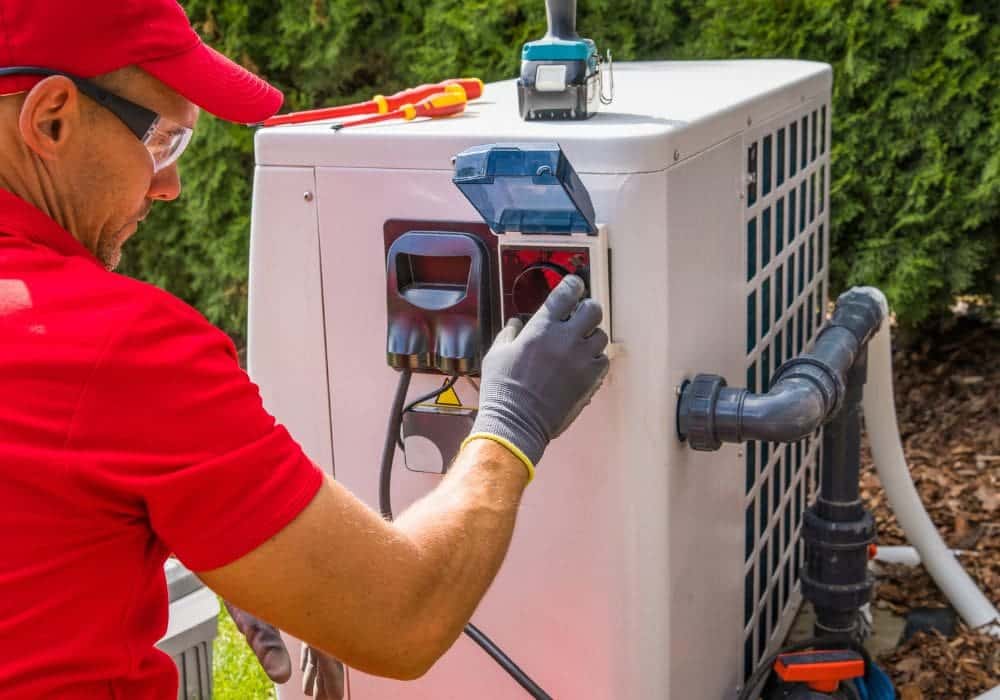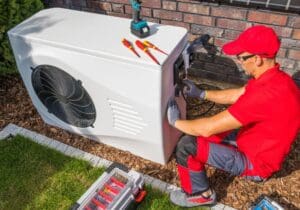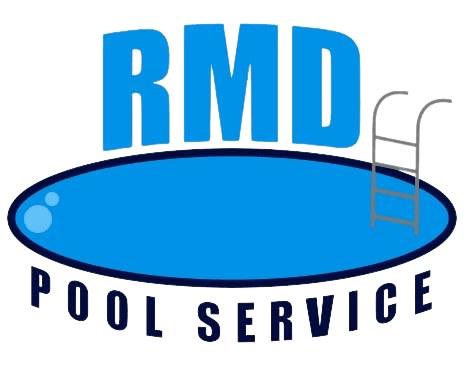
Pool Heater Maintenance – RMD Pool Service
At RMD Pool Service, we know how important it is to keep your pool warm and ready to use. That’s why pool heater maintenance is a must. A well-maintained heater helps keep your pool comfortable, reduces energy costs, and prevents unexpected breakdowns. Regular care of your pool heater is the best way to avoid costly repairs and enjoy trouble-free swimming year-round.
Why You Shouldn’t Skip Pool Heater Maintenance
If you don’t perform regular swimming pool heater maintenance, your heater could stop working when you need it most. Over time, dirt, debris, or worn-out parts can reduce the efficiency of your pool heater. This means your pool will take longer to heat, and you might pay more for electricity or gas. Following a simple maintenance plan will keep your heater running smoothly, save money, and avoid unnecessary repairs.
How Often Should You Perform Pool Heater Maintenance?
We suggest checking your pool heater at least once a year. If you use your pool frequently or live in an area with a lot of debris (such as leaves or dirt), you may need to clean your heater more often. Your pool or spa will maintain consistent heat if your gas heater, electric heater, or pool heat pump is kept clean and clear of blockages.
Detailed Steps for Basic Pool Heater Maintenance
Here’s a step-by-step guide to help you maintain your pool heater. These simple tasks help keep your heater in good shape and working efficiently.
1. Check and Clean the Filter and Pump
Your pool’s filter and pump are crucial parts of your heating system. The filter removes dirt and debris from the water, and the pump pushes the water through the heater. If the filter is dirty or the pump isn’t working properly, the water flow will be reduced, which can prevent the heater from doing its job.
- Clean the filter regularly to keep water flowing smoothly.
- Check the pump for any blockages or unusual noises that could signal a problem.
- Make sure there’s good water flow through the system, as poor flow can cause the heater to overheat or shut off.
2. Inspect the Heat Exchanger
The component of your pool heater that really does the heating is called the heat exchanger. Water flows through the exchanger and absorbs heat before returning to the pool. If the exchanger is dirty or clogged, your heater can transfer heat less efficiently.
- Check the heat exchanger for any dirt, leaves, or debris.
- Use a soft brush or cloth to clean the heat exchanger gently. Do not use harsh chemicals that could damage the parts.
- Make sure the exchanger isn’t corroded. Corrosion is a common problem in humid areas like Florida and can lead to costly repairs.
3. Check for Leaks
Leaks in your pool heater or around the pipes can cause the heater to lose pressure or even stop working. Even small leaks should be fixed right away to avoid bigger problems later.
- Inspect the connections, pipes, and the heater for any signs of leaking water.
- Tighten any loose fittings and replace any faulty seals or components.
- If you notice a large leak, it’s best to call a professional for heater repair to avoid further damage.
4. Test the Temperature and Safety Switches
The thermostat and safety switches ensure your pool stays at the right temperature without overheating. It’s important to test these regularly to ensure your heater is operating safely.
- Set the thermostat to your desired temperature and check if the heater turns on and off properly.
- Test the safety switches to make sure they’re working and that the heater shuts off if the water pressure or flow is too low.
- If the heater doesn’t respond, an issue with the switches or thermostat may need professional attention.
5. Clean the Heater Cabinet
Debris and dirt can gather inside the heater cabinet, especially in outdoor units. Keeping this area clean will help prevent overheating and ensure proper ventilation.
- Remember to turn off the heater and disconnect it from the power or gas source before you begin cleaning.
- Using a cloth or soft brush, carefully remove any dust, dirt, or leaves from the inside and outside of the heater.
- Check the heater for any indications of rust or wear and tear, especially if you live near the coast where saltwater can cause corrosion.
Pool Heater Cleaning: An Easy Way to Save Money
Keeping your pool heater clean is one of the easiest ways to ensure it works well. Dirty heaters use more energy, take longer to warm up the water, and wear out faster. Regular cleaning of the heater, filter, and pump will save you time, energy, and money in the long run.
Why a Warranty Matters
Most pool heaters come with a warranty that covers parts and labor if something goes wrong. However, in order for the warranty to remain valid, you must generally follow proper maintenance guidelines. Make sure you document all your pool heater maintenance work and any service calls to show that you’ve kept up with your heater’s care.
When to Call a Professional
While you can handle basic pool heater maintenance, some issues need professional attention. If your heater is constantly shutting off, the water isn’t getting hot enough, or you’re hearing unusual sounds, it might be time to call a pro. At RMD Pool Service, we specialize in pool heater repairs and can help with any cleaning, heater repair, or maintenance you need.
The Bottom Line

Pool Heater Maintenance – RMD Pool Service
Regular pool heater maintenance is essential for keeping your pool warm and your heater working efficiently. Simple steps like cleaning the filter, checking the pump, and inspecting the heat exchanger can prevent major issues and save money. At RMD Pool Service, we’re here to help with any of your pool’s heating needs, whether it’s heater cleaning, repairs, or advice on keeping your pool at the perfect temperature.
Don’t wait for a problem to arise—schedule your annual pool heater maintenance today and enjoy a warm, worry-free swim season!
FAQs about Pool Heater Maintenance
What is pool heater maintenance, and why is it important?
Pool heater maintenance involves regular checks and cleaning to ensure your pool heater operates efficiently. It’s crucial for avoiding repairs and keeping your pool warm.
How often should I perform maintenance on my swimming pool heater?
We recommend checking your swimming pool heater maintenance at least once a year. If you use your pool frequently, consider doing it more often.
What should I clean during my pool heater maintenance routine?
You should clean the filter, pump, and heat exchanger during maintenance. Keeping these parts clean will help your pool heater function properly.
How can I know if my pool heater needs repairs?
Unusual noises, insufficient heating, or frequent shut-offs are signs that your pool heater needs repairs. If you notice these issues, contact RMD Pool Service for assistance.
What are some common pool heater problems?
Dirty filters, low water flow, and faulty thermostats are common issues. Regular maintenance can help control these issues.
Is it necessary to hire a professional for pool heater maintenance?
While some tasks can be done on your own, hiring a professional like RMD Pool Service ensures thorough maintenance and helps maintain any warranties on your equipment.
What is the role of the heat exchanger in my pool heater?
The heat exchanger transfers heat from the heater to the water. A dirty or damaged exchanger can reduce heating efficiency.
Can I perform maintenance on my gas pool heater myself?
Yes, you can perform basic tasks like cleaning the filter and checking for leaks. However, it’s best to consult with RMD Pool Service for more complex issues.
How does a clean pool filter affect my heater’s performance?
A clean pool filter ensures proper water flow, allowing your pool heater to operate more efficiently. This can help you save money on energy costs.
What types of warranties are available for pool heaters?
Many pool heaters come with warranties that cover parts and labor. Maintenance is essential to keeping the warranty valid.
Do you have more questions or need professional assistance with your pool heater maintenance in Allen,TX? Please don’t hesitate to call us at RMD Pool Service. We’re here to help you enjoy a warm and welcoming pool!
Related Article
The Ultimate Pool Maintenance Checklist: Essential Steps for a Pristine Pool
